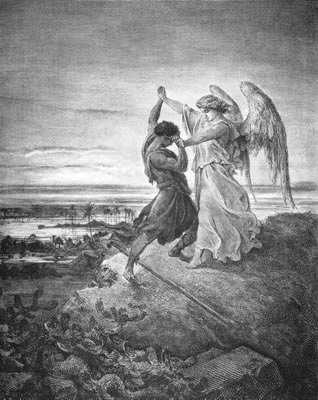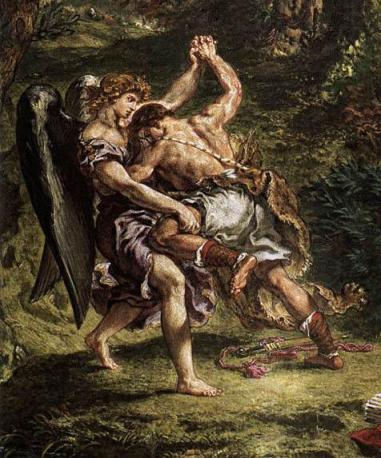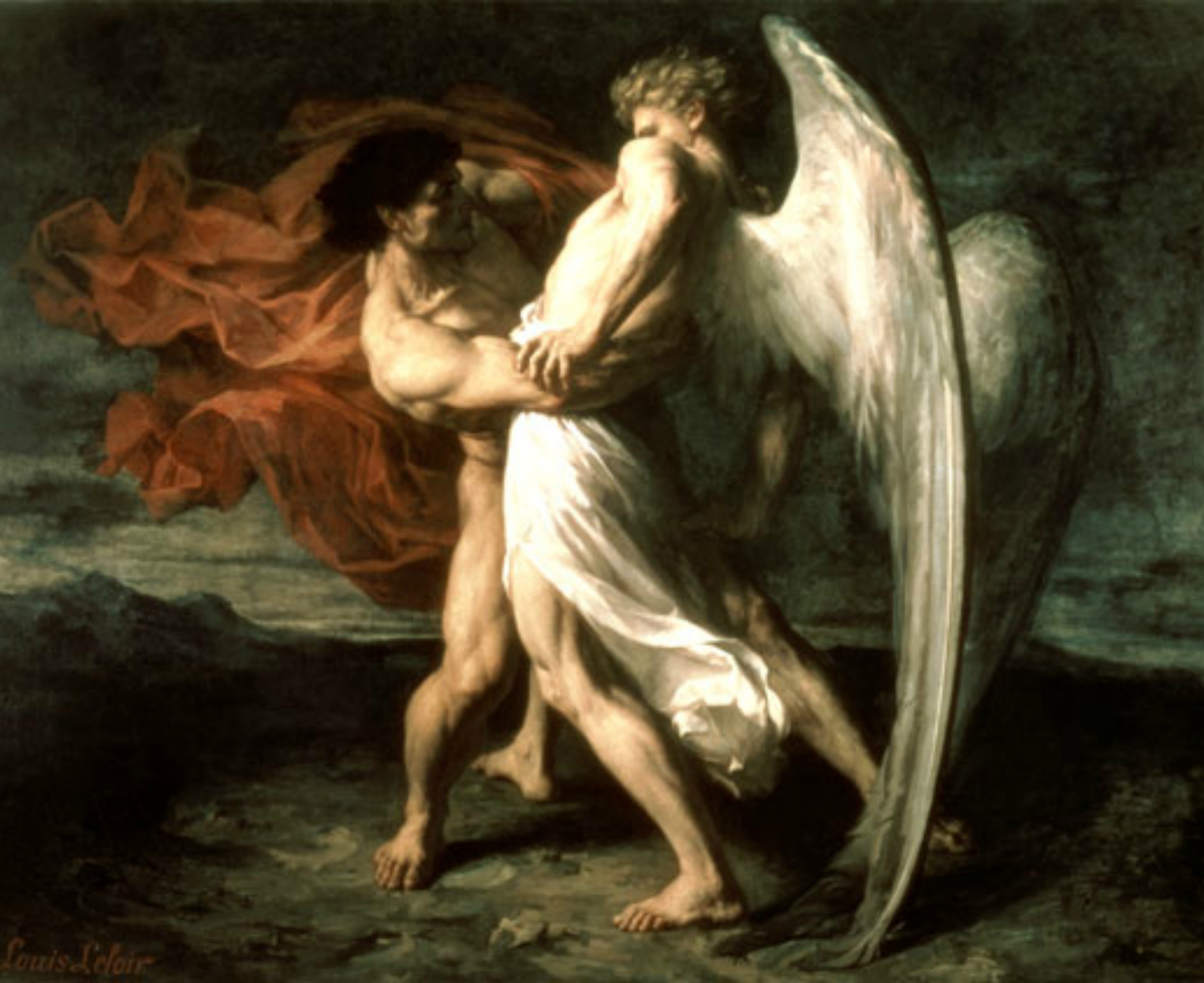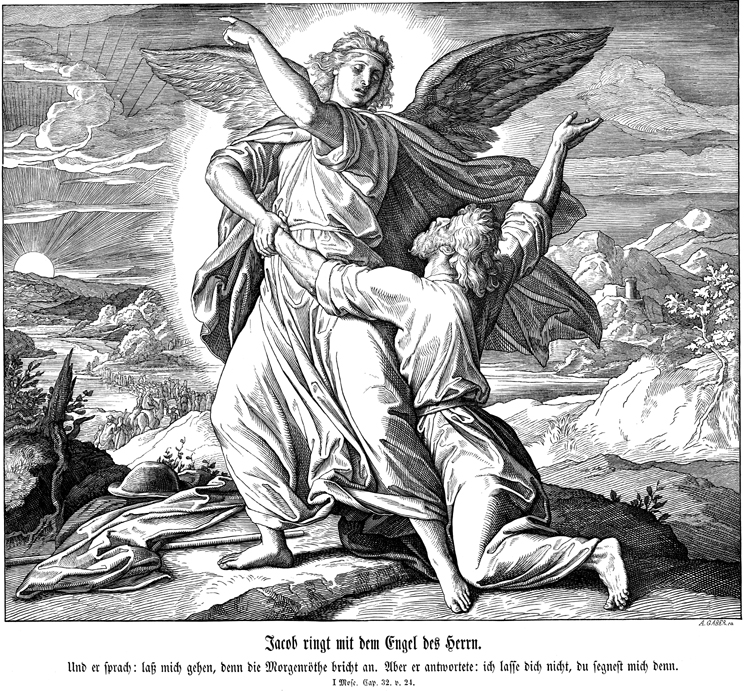The popular theme of the nightly "demon" attack (cf. Psalm 91:5f) in a desert place (the usual dwelling place of demons) is also used in the story of Moses' assault by Yahweh (Exodus 4:24ff). Here the assailant is called a man ('ish), while in another (negative) version of the story (Hosea 12:4) he is a "messenger" or "angel" (mal'akh). The Genesis story (apart from its wider integration in the monotheistic Torah) makes better sense on a polytheistic background: according to the most natural reading of the parallelism, Jacob is said to have struggled with gods and men (v. 29, 'elohim / 'anashim; similarly 'elohim can be understood as either "a god" or "gods" in v. 31). In addition to that, the story serves as an etiology for both the toponym Peniel/Penuel and the ethnical name Israel (cf. the alternative story in 35:10), which both refer to 'El as the supreme god of the Canaanite pantheon (cf. El Shadday in 35:11).
Of course all such stories where a god "naturally" interacts with humans had to be reinterpreted in the new context of monotheism, through either allegory or angelology (or Christology)...





